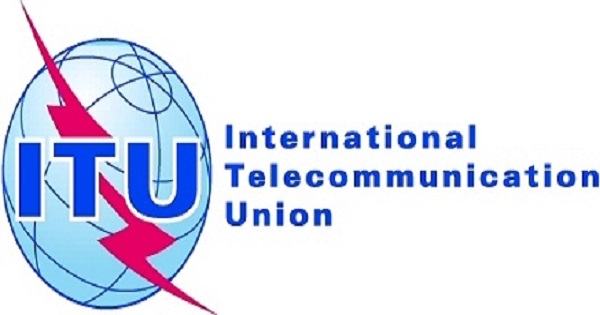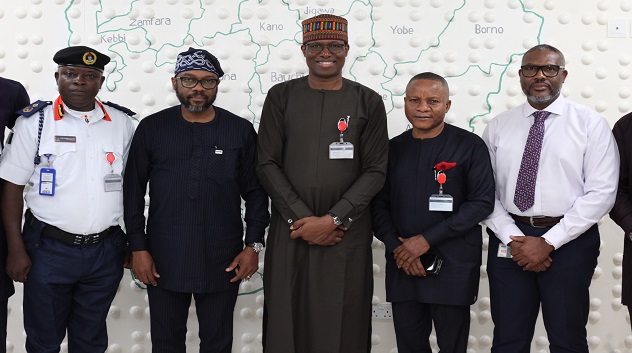Telecom
ITU Rolls Out Regulatory Guidelines for Digital Transformation

International Telecommunication Union (ITU) has released the 2020 Global ICT Regulatory Outlook, and rolled out regulatory guidelines for digital transformation.

The guidelines include the benchmark of Fifth Generation Collaborative Regulation, a new tool for policymakers and regulators to leverage digital transformation for all through stronger collaboration across sectors.
Speaking about the new regulatory guidelines, Mr. Houlin Zhao, secretary-general, ITU, said: “Collaboration across sectors proves increasingly successful in piloting regulators and policymakers towards broad and inclusive digital transformation. Indeed, digital technologies and services are transforming lives across society – from agriculture to smart water management systems, and ITU stands ready to support regulators and policymakers around the world. The ‘G5 Benchmark’ serves as a compass for regulators on their journey towards digital transformation for all.”
According to him, the benchmark of Fifth Generation Collaborative Regulation, also referred to as the ‘G5 Benchmark’, would help to fast-track collaboration among regulators and policymakers from the ICT sector and other sectors to drive digital transformation for all.
As the ICT landscape is complex and fast moving, the ‘G5 Benchmark’ offers metrics to assess gaps, proposes smart roadmaps through shifting regulatory landscapes, tracks progress and proposes solutions where concrete progress towards the Sustainable Development Goals has proved challenging, Zhao said.
He added that the concept of ‘regulation generations’ would help stakeholders to analyse the maturity of modern regulatory frameworks – from the command and control of first generation (G1) regulation, to a collaborative and harmonised approach in fifth generation (G5) regulation.
The 2020 Global ICT Regulatory Outlook benchmarks regulation across 193 countries worldwide and offers an objective perspective on the latest trends driving ICT policy and regulation. It also highlights six golden rules that accelerate the take-up of mobile broadband and seven rules that boost fixed broadband adoption.
ITU said its findings showed that 16 countries out of 193 now have collaborative regulatory frameworks in place to enable digital transformation for all.
“16 G5 countries now have holistic, forward-looking regulatory frameworks in place set to enable digital transformation across their economies.
“More than half of world’s population is concentrated in G2 and G3 countries, with potential to leapfrog to near universal digital inclusion. Meanwhile, a quarter of countries remain in the G3 category, making progress on stronger policy and regulation, but are unable to unlock the full potential of ICT markets,” Zhao added.
According to him, in just one decade, G4 became the established standard for every ICT regulator, with more than 50 countries in this category. However, 40 per cent of countries languish in G1 or G2 categories, missing development opportunities and increasingly adrift from global digitisation and economic transformation.
Doreen Bogdan-Martin, director of ITU Telecommunication Development Bureau, said: “The Global ICT Regulatory Outlook 2020 is as a rich, powerful and practical tool to all of us seeking to build a world of meaningful connectivity through regulation that is open across sectors, and above all, collaborative.
“It lays out clearly the trends, the challenges and the opportunities before the regulatory community in 2020 and continues to set out the decades-long ICT regulation story as our industry develops and responds to major world crises like the 2008 financial crash and COVID-19.”
Comparing the Global ICT Regulatory Outlook 2020 with regional regulations, Zhao said regulatory frameworks in Africa have evolved the most over the past ten years.
According to him, as of 2018, only two African nations remained in the G1 category.
“Africa’s score has kept pace with the rise in world averages, and has exceeded averages of the Arab States, and Asia-Pacific.
In the Americas, over a third of countries have now achieved the highest G4 and G5 generations of regulation.
“Between 2007 and 2018, the region increased its average score more than all other regions, with thirteen countries now having attained G4 status.
Telecom
IHS Nigeria Hosts Telecom Industry Stakeholders to Discuss Protection of Critical National Infrastructure in Lagos State

IHS Nigeria, part of the IHS Holding Limited (NYSE: IHS) (“IHS Towers”) group, one of the largest independent owners, operators, and developers of shared communications infrastructure in the world by tower count, recently hosted a high-level meeting of stakeholders in the telecommunications industry including regulators and law enforcement agencies, at its corporate headquarters in Lagos.

The meeting was organized to develop a multi-stakeholder action plan for the protection of Critical National Information Infrastructure (CNII) assets in Lagos state.
Recognizing the importance of communications infrastructure as the backbone of national security, economic growth and social cohesion, the stakeholders at the meeting convened under the umbrella of the Association of Licensed Telecoms Operators of Nigeria (ALTON) agreed on the urgent need for collaborative solutions to ensure the protection of these vital assets.
The meeting was attended by senior representatives from the telecommunications stakeholder groups and regulatory bodies including the Nigerian Communications Commission (NCC), the Association of Licensed Telecoms Operators of Nigeria (ALTON), Association of Telecommunications Companies of Nigeria (ATCON) and the Lagos State Infrastructure Maintenance and Regulatory Agency (LASIMRA).
Also in attendance were representatives from the Mobile Network Operators (MNOs), and InfraCos as well as the Nigeria Security and Civil Defence Corps (NSCDC), the security agency tasked with the protection of Critical National Infrastructure across the country.
Following extensive deliberations, the stakeholders resolved to establish a working group dedicated to addressing key industry challenges, including the vandalization and theft of telecommunications infrastructure, arbitrary shutdown of base stations, fiber cuts due to road construction and the denial of access by unauthorized individuals by leveraging technology for real-time monitoring and protection, strengthening security measures around telecommunication sites and collaborating more with the security and regulatory agencies to mitigate these challenges.
The stakeholders underscored the need to prioritize deterrence and prevention of these incidents and highlighted the importance of public awareness campaigns to sensitize the host communities and public of the need to protect telecommunications infrastructure in their localities.
Dapo Otunla, Senior Vice President & Chief Corporate Services Officer of IHS Nigeria, commented, “The protection of Critical National Information Infrastructure (CNII) has been a critical concern for all industry stakeholders.
“We are experiencing daily losses of assets, which significantly impact on the quality of service delivered to subscribers. Addressing these issues is paramount to sustaining Nigeria’s digital ecosystem and meeting regulatory expectations.”
Telecom
MTN Champs Continental Relays: Over 1,000 Athletes Gear Up for Lagos Showcase

Over 1ooo athletes are already set to participate in the upcoming MTN Champs Continental Relays, taking place between April 9 and April 12 at the UNILAG and Yabatech Sports complexes. Organisers anticipate even more registrations before the April 2 deadline.

MTN Champs is Nigeria’s largest grassroots sports competition, a collaboration between MTN Nigeria and Making of Champs (MoC), providing a platform for young athletes to showcase their talents and potentially represent Nigeria on the global stage.
Osaze Ebueku, Senior Manager, Go-to-Market at MTN Nigeria at the opening ceremony of the MTN Champs Classics events in Benin had emphasised the long-term vision behind MTN Champs: “We’re building future Olympians for Nigeria. MTN Champs is about more than competition. It’s about changing lives.”
The continental relays mark the second leg of the MTN Champs Season 3, following the Classics competition in Benin, which saw 4,371 event entries from 2,056 athletes.
As of March 24, the Lagos leg had already recorded 2,821 event entries across different age categories, highlighting the growing enthusiasm around the competition.
The registered athletes are spread across four categories, with 174 in the Cadet (U-14) category, 388 in Youth (U-17), 270 in Junior (U-20), and 279 in the Senior category.
To ensure smooth participation, organisers have outlined important guidelines. Athletes in the Cadet, Youth, and Junior categories must submit a signed Parental Consent Form, while all registered schools and athletes must collect their competition bibs by April 8 at the competition venue to confirm their participation and secure their place on the start list.
Sports enthusiasts can look forward to an electrifying showcase of emerging talent, as young athletes seize the opportunity to prove their skills on a professional stage.
Telecom
Again, Labour Fumes, Threatens Shutdown of Telcos over Non-Implementation of 15 Percent Tariff Reduction

Nigeria Labour Congress (NLC) is threatening to shut down operations of telecommunications companies over their refusal to comment on the 15 percent reduction in telecom tariffs.

Recall that that organised labour, through the NLC, forced the federal government and NCC to reduce the telecommunications tariff hike from 50% to 35% after threatening to shut down telecom operations and the NCC in response to what it saw as exploitative economic policies amidst excruciating suffering, hardship, and deepening poverty.
The government had previously formed a 10-member committee, consisting of five government and NLC representatives, to deliberate on the thorny topic of tariff hikes within two weeks and report back before making a final decision on the new telecom tariff structure.
Consequently, on Friday, February 21, 2025, the committee, at a meeting conducted in the office of the National Security Adviser (NSA) that lasted nearly three hours, decided on a 15 per cent tariff cut.
According to reports, in accordance with the conditions of the agreement, an official communiqué announcing the tariff reduction was scheduled to be released on Saturday, February 22.
According to Chronicle,iIt was said that the meeting began at 4:00 p.m. and concluded around 7:00 p.m., during which NLC representatives insisted that the tariff hike be withdrawn.
According to sources, after significant pressure from NLC representatives in the 10-man committee, the government and NCC gave up and agreed on the 15% decrease, which the government or NCC should have announced the next day.
However, at the time of this report, no such announcement has been made.
Leaders of the labour union are not taking the government’s failure to announce or implement the 15% tariff decrease lightly, suspecting that they have been duped.
The Labour leaders have therefore resolved to directly confront the NCC and telecommunications operators next week.
Though it has been reported that the date for the start of the industrial action against the NCC and telecom providers has been set and mobilisation is underway, the information is being closely guarded.
One of the leaders of the NLC stated that “We have received directives to commence mobilisation since last week. In fact, the date for the commencement of industrial action against the NCC and telecommunication operators’ offices across the country has been fixed. We have been warned not to disclose the date because the plan is to take all concerned by surprise. We are not giving any notice because we thought we had resolved this matter over a month ago. It is as if we have been scammed. Therefore, we have decided to confront the matter head-on.”
On February 12, the NLC expressed outrage over telecommunications companies’ tariff hikes, despite an earlier agreement with the Federal Government and the NCC.
According to the Labour union, “If the telecommunications companies fail to revert to the old tariff by the end of February 2025, a total shutdown of their operations nationwide will commence on March 1, 2025.”
To demonstrate its seriousness, the NLC declared that, as a first step in resisting the arbitrary tariff hike, it directed that workers and other willing citizens boycott the services of MTN, AIRTEL, and GLO daily between 11:00 a.m. and 2:00 p.m. until the end.
On Tuesday, February 11, NLC leaders issued a communiqué at the conclusion of their Central Working Committee (CWC) meeting in Lokoja, Kogi State, urging workers and citizens to suspend data purchases from telecommunications companies, which have also become one of their most effective tools for exploiting Nigerian citizens.
The communiqué, signed by Joe Ajaero and Emma Ugboaja, Congress’ President and General Secretary, respectively, instructed NLC State Councils and industrial union affiliates to quickly sensitise and mobilise their members and the general public in their jurisdictions.

 News2 days ago
News2 days agoCourt Throws Out Falana’s Fraud Case against Ekeh, Zinox Boss and Others

 E-Financial2 days ago
E-Financial2 days agoHeritage Bank Depositors Seek National Assembly’s Help to Recover Trapped Funds

 Telecom2 days ago
Telecom2 days agoNokia Unwraps 5G Gateway for Home Internet

 News2 days ago
News2 days agoFG Receives N1Bn Grant from Airtel Africa to Boost 3MTT Programme

 News2 days ago
News2 days agoFG to Halt Solar Panel Imports, Pushes for Local Manufacturing

 Telecom1 day ago
Telecom1 day agoAgain, Labour Fumes, Threatens Shutdown of Telcos over Non-Implementation of 15 Percent Tariff Reduction

 E-Business2 days ago
E-Business2 days agoSenate Passes Bill to Re-enact NIMC Act

 News1 day ago
News1 day agoNNPC Ready to Go to Capital Market for IPO- CFIO

























